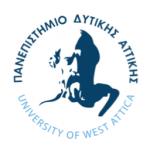2020 |
Drivas, Ioannis C; Georgios, Giannakopoulos; Sakas, Damianos Learning Analytics in Big Data Era. Exploration, Validation and Predictive Models Development Conference Intelligent Tutoring Systems, Springer, 2020. Abstract | Links | BibTeX | Tags: Big data, intelligent tutoring systems, Learning analytics, Learning management systems, online learning platforms @conference{Drivas2020b,The untamed big data era raises opportunities in learning analytics sector for the provision of enhanced educational material to learners. Nevertheless, big data analytics, brings big troubles in exploration, validation and predictive model development. In this paper, the authors present a data-driven methodology for greater utilization of learning analytics datasets, with the purpose to improve the knowledge of instructors about learners performance and provide better personalization with optimized intelligent tutoring systems. The proposed methodology is unfolded in three stages. First, the learning analytics summarization for initial exploratory purposes of learners experience and their behavior in e-learning environments. Subsequently, the exploration of possible interrelationships between metrics and the validation of the proposed learning analytics schemas, takes place. Lastly, the development of predictive models and simulation both on an aggregated and micro-level perspective through agent-based modeling is recommended, with the purpose to reinforce the feedback for instructors and intelligent tutoring systems. The study contributes to the knowledge expansion both for researchers and practitioners with the purpose to optimize the provided online learning experience. |
Drivas, Ioannis C; Kyriaki-Manessi, Daphne; Georgios, Giannakopoulos; Sakas, Damianos P Big Data Analytics for Search Engine Optimization Journal Article In: Big Data and Cognitive Computing, vol. 4, no. 2, pp. 23, 2020. Abstract | Links | BibTeX | Tags: Big data, cultural institutions, search engine optimization, web analytics @article{Drivas2020c,In the Big Data era, search engine optimization deals with the encapsulation of datasets that are related to website performance in terms of architecture, content curation, and user behavior, with the purpose to convert them into actionable insights and improve visibility and findability on the Web. In this respect, big data analytics expands the opportunities for developing new methodological frameworks that are composed of valid, reliable, and consistent analytics that are practically useful to develop well-informed strategies for organic traffic optimization. In this paper, a novel methodology is implemented in order to increase organic search engine visits based on the impact of multiple SEO factors. In order to achieve this purpose, the authors examined 171 cultural heritage websites and their retrieved data analytics about their performance and user experience inside them. Massive amounts of Web-based collections are included and presented by cultural heritage organizations through their websites. Subsequently, users interact with these collections, producing behavioral analytics in a variety of different data types that come from multiple devices, with high velocity, in large volumes. Nevertheless, prior research efforts indicate that these massive cultural collections are difficult to browse while expressing low visibility and findability in the semantic Web era. Against this backdrop, this paper proposes the computational development of a search engine optimization (SEO) strategy that utilizes the generated big cultural data analytics and improves the visibility of cultural heritage websites. One step further, the statistical results of the study are integrated into a predictive model that is composed of two stages. First, a fuzzy cognitive mapping process is generated as an aggregated macro-level descriptive model. Secondly, a micro-level data-driven agent-based model follows up. The purpose of the model is to predict the most effective combinations of factors that achieve enhanced visibility and organic traffic on cultural heritage organizations’ websites. To this end, the study contributes to the knowledge expansion of researchers and practitioners in the big cultural analytics sector with the purpose to implement potential strategies for greater visibility and findability of cultural collections on the Web. |
Indicative Publications
2020 |
Learning Analytics in Big Data Era. Exploration, Validation and Predictive Models Development Conference Intelligent Tutoring Systems, Springer, 2020. |
Big Data Analytics for Search Engine Optimization Journal Article In: Big Data and Cognitive Computing, vol. 4, no. 2, pp. 23, 2020. |

